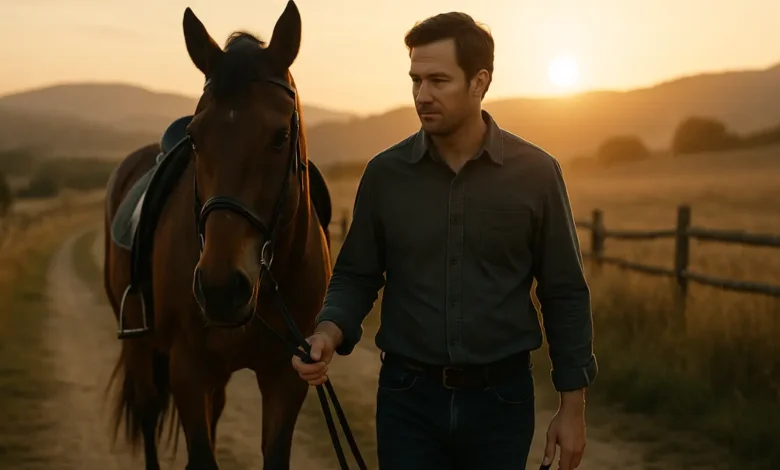Can You Get a DUI on a Horse? The Truth Behind the Law and the Saddle

Can you get a DUI on a horse? Discover the surprising truth about riding while intoxicated, how laws differ by state, real cases, penalties, defenses, and what really happens if you drink and ride.
Riding a horse after a few drinks might sound like a fun old-fashioned adventure, but the truth is far more complicated. Many people assume that DUI laws only apply to motor vehicles — but the question can you get a DUI on a horse proves that the law isn’t always that simple.
In some places, yes, you can absolutely be arrested and charged with driving under the influence while riding a horse. In others, the law says otherwise. The confusion arises because the legal definition of “vehicle” and “operation” changes depending on where you are. What’s a DUI in California might be public intoxication in Texas or completely dismissed in Colorado.
This article explores every angle: what DUI laws actually mean, how they apply to horses, which states prosecute drunk riders, and why this question is more than just a funny hypothetical. By the end, you’ll understand exactly where the law stands — and why riding drunk is a bad idea, no matter what the statute says.
Understanding DUI Laws in General
Before we can figure out if a horse qualifies under DUI laws, we need to understand what DUI really means. DUI, or “Driving Under the Influence,” refers to operating a vehicle while impaired by alcohol or drugs. In most regions, this means having a blood alcohol concentration (BAC) above a certain limit, typically 0.08%.
DUI laws exist to protect the public from impaired drivers who could cause accidents. The focus isn’t just on alcohol — prescription medications, marijuana, or other intoxicants can also result in charges. The key element is the concept of operating or controlling a vehicle.
Here’s the tricky part: in many laws, “vehicle” is defined broadly as any device used to transport a person or property on a highway. Some states specify “motor vehicle,” while others simply say “vehicle.” That tiny difference can determine whether someone can get a DUI on a horse.
So, if a state uses “vehicle” instead of “motor vehicle,” prosecutors may argue that a horse — being a form of transportation — qualifies. On the other hand, if the law specifies motorized transport, a horse is excluded.
When a Horse Counts as a Vehicle
In certain states, riding a horse while intoxicated is treated no differently from driving a car drunk. The reasoning is simple: when you’re on public roads, the same safety risks apply — you can still cause accidents, block traffic, or endanger others.
Some courts interpret their DUI laws broadly to include horses. The argument is that whether it’s a car, bicycle, or horse, you’re still operating something that moves you along a public road.
In places where the law takes this view, offenders have been charged, fined, and even jailed. They may also lose their driver’s license, just as if they had been in a vehicle.
Imagine riding a horse down a public highway after a few drinks. Even if the horse is calm, your reaction time, coordination, and judgment are impaired. That means you could veer into traffic, fail to respond quickly to a spooked animal, or cause an accident. The law treats that as an equivalent danger to drunk driving.
In these states, a horse can absolutely be considered a “vehicle” under DUI statutes.
When a Horse Is Not Considered a Vehicle
In other jurisdictions, horses are clearly excluded from DUI laws. Legislators in these places see a difference between mechanical control and animal behavior. A horse, after all, has instincts — it can stop, turn, or avoid danger on its own.
These states generally limit DUI to “motor vehicles,” meaning anything that runs on an engine. Since horses are living beings, not machines, riding one while drunk does not fall under DUI statutes.
However, this doesn’t mean you’re completely off the hook. Even if you can’t be charged with a DUI, you might face other penalties such as:
- Public intoxication: For being impaired in a public place.
- Animal cruelty: If your actions endanger the horse.
- Reckless endangerment: If your riding behavior puts others at risk.
- Traffic obstruction: If you interfere with the safe movement of vehicles.
In other words, you might avoid a DUI, but you won’t necessarily avoid trouble.
Why Some States Include Horses and Others Don’t
The difference between states usually comes down to how old their traffic laws are and how they were written. In early American law, long before cars, horses and wagons were the main vehicles. When automobiles came along, legislatures updated their language, but not always consistently.
Some simply added “motor” to their definition of “vehicle,” while others didn’t. In the latter case, anything you ride or drive — even a horse — might qualify.
The logic behind including horses in DUI laws often stems from public safety. Lawmakers reason that a drunk rider can cause just as much harm as a drunk driver if they’re on public roads. Meanwhile, states that exclude horses argue that DUI laws were intended for machines, not living creatures.
This is why the answer to can you get a DUI on a horse depends on where you are. There’s no universal rule across the United States — each state’s laws and courts decide differently.
Real-Life Cases of Horseback DUIs
Though rare, there have been several real-life cases where people were charged for riding horses under the influence. In states like California, Kentucky, and Pennsylvania, authorities have made arrests under DUI statutes.
In these instances, riders were stopped for erratic behavior on public roads, failed field sobriety tests, and had BAC levels above the legal limit. Judges often treated these cases just like automobile DUIs, citing the same risks of harm and impaired operation.
Other states have refused to pursue DUI charges but still punished riders under related offenses. For example, someone riding a horse drunk through a crowded area could face charges of disorderly conduct or animal neglect.
These cases show that even if the exact label “DUI” doesn’t apply, law enforcement can still find a way to hold you accountable if you ride impaired.
Safety Risks of Riding Drunk on a Horse
Even beyond the law, there are serious safety reasons to avoid riding while intoxicated. Alcohol affects balance, coordination, and judgment — all vital skills for horseback riding.
Horses are sensitive animals that respond to subtle cues. A rider’s weight shift, rein movement, or tone of voice can influence how a horse behaves. When a person is intoxicated, they lose precision, and that confusion can frighten or mislead the horse.
A spooked horse can easily bolt into traffic, throw its rider, or collide with another object. Drunk riders also have slower reaction times, making it difficult to handle sudden obstacles or shifts in terrain.
Injuries from horse accidents are no joke — falls can result in broken bones, head trauma, or even death. And the horse, too, can be injured or traumatized.
So whether or not you can legally get a DUI on a horse, riding under the influence is risky, irresponsible, and unfair to the animal.
The Legal Consequences of a Horseback DUI
If you are charged with a DUI while on horseback in a jurisdiction that allows it, you could face the same penalties as a driver. These may include:
| Potential Penalty | Description |
|---|---|
| License suspension | Loss of driving privileges for a set period |
| Fines | Monetary penalties that can range from hundreds to thousands of dollars |
| Jail time | Especially for repeat offenses or endangerment |
| Probation or community service | Alternative sentences for first-time offenders |
| Criminal record | A lasting record that can affect employment and travel |
Even if your case doesn’t result in a DUI conviction, charges like animal cruelty, public intoxication, or reckless conduct can still lead to fines or jail time.
And perhaps most importantly, you’ll still have a mark on your record that could affect your reputation and career.
Common Defenses Against a Horse DUI
If someone is charged with a DUI on a horse, several possible defenses exist depending on the jurisdiction:
1. The law doesn’t apply to animals.
Your attorney can argue that the DUI statute only applies to motor vehicles, not horses. This defense often succeeds in states with specific wording.
2. Lack of operation or control.
If the horse was moving on its own or led by another person, you could argue you weren’t “operating” it.
3. Procedural errors.
Officers must follow proper steps during a DUI arrest — incorrect testing, lack of probable cause, or mishandling evidence can weaken the case.
4. Low BAC or insufficient impairment evidence.
If your BAC was below the legal limit, or there’s no proof you were impaired, charges might be reduced or dismissed.
5. Public vs. private property.
If the incident occurred on private land, prosecutors may not be able to prove jurisdiction.
While not all defenses guarantee success, many have led to dismissals or reduced charges.
Moral and Ethical Aspects
Laws aside, there’s an ethical dimension to consider. Riding a horse while intoxicated doesn’t only risk your safety; it can also endanger the horse. Horses are not vehicles — they’re sentient beings that rely on clear communication and calm handling.
When a rider is impaired, they can easily send confusing signals, pulling too hard on reins or kicking too sharply. The horse may panic, stumble, or suffer stress or injury.
From an animal welfare perspective, intoxicated riding is a form of neglect. Responsible riders treat their horses with care and ensure they are never put in unsafe conditions.
Even if your state won’t prosecute you for a DUI, choosing to ride sober shows respect for your horse and for others on the road or trail.
How to Avoid Legal Trouble
If you’re planning to ride and alcohol is involved, take precautions:
- Designate a sober rider or handler to guide the horse home.
- Stay off public roads where traffic laws apply.
- Ride only on private land with permission.
- Wait until you’re sober before handling or saddling your horse.
- Know your local laws before assuming you’re safe.
These small steps can save you from major legal headaches — or worse, a preventable accident.
Expert Quote
“Just because you aren’t behind the wheel doesn’t mean you’re not responsible. A horse may have instincts, but it’s still under your command — and your impairment affects everyone’s safety.”
— Legal Analyst & Equestrian Safety Advocate
Frequently Asked Questions
Can you really get a DUI on a horse?
Yes, in some states you can. It depends on whether the law defines a horse as a vehicle. Some states include horses under DUI statutes; others do not.
What happens if I ride a horse drunk where it’s not illegal?
You might still face charges such as public intoxication, disorderly conduct, or animal endangerment.
Can a horse DUI affect my driver’s license?
In states where horseback DUI is treated like car DUI, yes. Your license could be suspended or revoked.
If I’m on private property, can I still be charged?
Usually no, but it depends on state law. Some DUI laws extend beyond public roads.
Can I argue the horse was in control, not me?
Courts rarely accept that argument. If you’re on the horse and giving any form of guidance, you’re responsible.
Has anyone actually been arrested for a horse DUI?
Yes, there are documented cases in several states where riders were arrested and charged under DUI statutes for riding horses while intoxicated.
Conclusion
So, can you get a DUI on a horse? In some places, yes — and in others, not exactly, but you can still get into serious trouble. Whether or not the law calls it a “DUI,” riding a horse while intoxicated is dangerous, irresponsible, and potentially criminal.
A horse isn’t a car, but it’s not a free pass either. Alcohol and animals don’t mix well. The best advice? If you’ve been drinking, leave the saddle empty and enjoy your ride another day.





